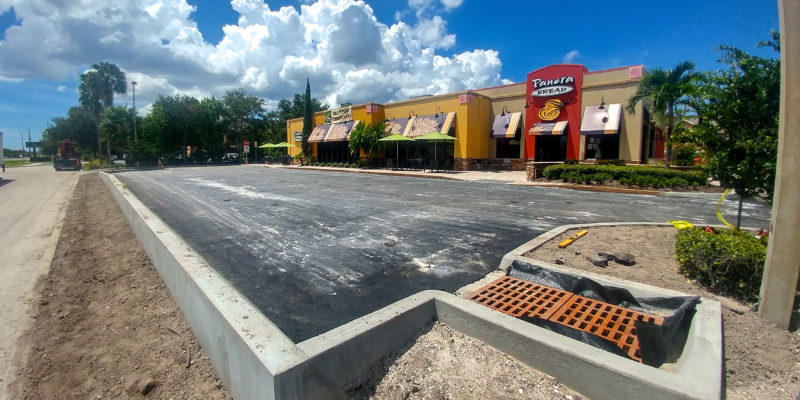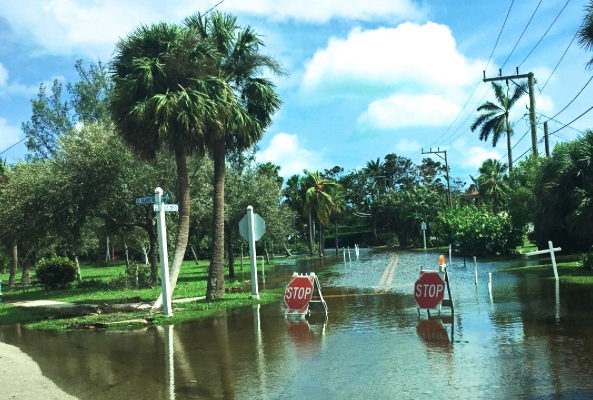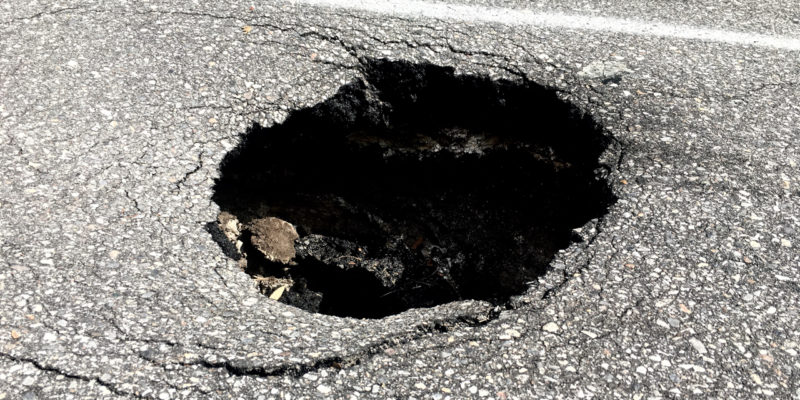Parking lot maintenance reminders are extremely helpful to maximize the life of your asphalt or concrete parking lot. Helpful tips usually involve carefully inspecting the surfaces, regularly sweeping for debris, quickly repairing any signs of cracks larger than a quarter inch wide, and resurfacing pavement when needed. Consistently performing the appropriate repairs and maintenance will ensure your last longer, which saves you money over the life of your parking lot.
Creating regular parking lot maintenance reminders prevents larger issues that always seem to happen at the worst time and necessitate costly emergency repairs. A parking lot would be like any other usual surface except for the fact vehicles are driving and parking and leaking on it on it all day long. This kind of wear and tear puts a lot of pressure on concrete and asphalt surfaces. Throw daily rain into the mix like we experience here in florida, your parking lot is definitely going to need regular TLC. For those planning to build a parking plot (or any asphalt or concrete surface) in your next construction project, the actual installation of parking lot surfaces is equally important to overall longevity, so make sure it’s done right the first time. We at ARC Development can make sure it’s done perfectly. In the meantime, here are 5 parking lot maintenance tips:
Valuable Parking Lot Maintenance Tips
1. Add Sealcoating To Parking Lot Surfaces
This is one of the most important, if not THE MOST, tip we’re providing. A fresh layer of sealcoat regularly every couple years will help prevent breakdown of materials. It will also stop water, debris and other harmful elements from degrading your pavement. Sealcoating intervals are determined by how much traffic your parking lot gets, so if you see a high amount of wear and tear on your parking lot, give it some sealcoat. If you don’t want to deal with it, give us a call. We can put you on a regular maintenance schedule.
2. Clean Parking Lot Surfaces Regularly
Cleaning parking lot surfaces regularly will help prevent a lot of damage a parking lot surface receives over its lifetime. Once a month or more, surfaces should be cleaned of all debris, including garbage and leaves. This is also the time to clean up any fuel or oil, which will deteriorate surfaces if left for too long.
Leaking vehicles are unavoidable in parking lots but oil can wreak havoc over pavement surfaces. Oil breaks down surfaces, creates ugly blemishes, and ultimately degrades your parking lot. There are myriad of methods used to clean oil stain but just make sure it’s cleaned up on a regular basis.
3. Inspect Parking Lots Carefully For Cracks, Stains, & Other Damages
Once a week, take the time to inspect surfaces for cracks, fading, or other imperfections that could potentially lead to liability issues. The sooner you identify issues the less expensive it will be to make repairs.
4. Fix Cracks Immediately
Cracks that measure wider than ¼-inch are typically good candidates for repairs. Water is the reason for road repair in Florida so a crack in your pavement is a wide open door for harm. In addition to water seeping into cracks, watch out for vegetation. If you see weeds springing up you should take care of that right away. The root systems can grow over time and cause irreversible damage. People can also trip over them, which you leaves open to liability.. Plus, you’re helping create a stronger, dryer and more solid surface. Some cracks are too small to require sealant, but any crack that is big enough to benefit from sealant should be taken care of right away.
5. Redesign Your Parking Lot Occasionally
Change isn’t always bad. If the traffic flow is wearing down certain areas of your parking lot, you should make right of way changes from time to time. New striping will balance the wear and tear and extend the life of the parking lot. When you make changes to parking lot design, remember to be in compliance with ADA guidelines because they are very strict.
6. Handle Parking Lot Drainage Issues ASAP
Parking lots require proper drainage in order to survive rain, snow and other influxes of water. Backed up drains are the same as having no drain, and this creates an unsightly and potentially noxious smelling issue. Without having proper drainage, rain water will pool on top of parking lot surfaces and seep into the surface, especially if you don’t have a good coat of sealcoat. This is setting the stage for a lot of future damage and expensive repair. Water damage is the number one enemy of concrete and asphalt, so do your best to make sure your parking lot has more than adequate draining capabilities.
7. Rely On ARC Development
ARC Development pours premium, commercial parking lots that are built to last. With tens of thousands of hours of experience, we are true masters of parking lot installations and repairs. As solution providers and problem solvers, our impeccable testimonials speak themselves. Contact us today for a quote on your next project.



